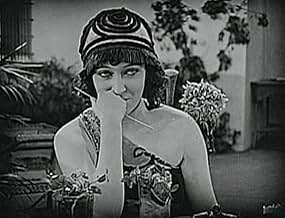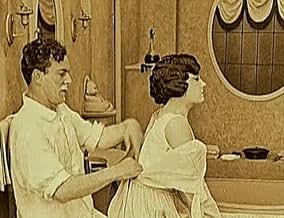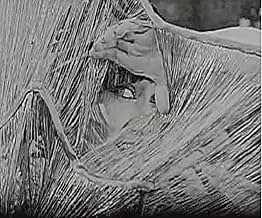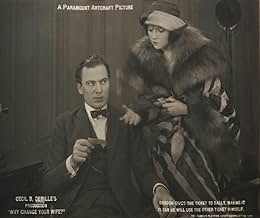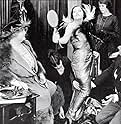Robert and Beth Gordon are married but share little. He runs into Sally at a cabaret and the Gordons are soon divorced. Just as he gets bored with Sally's superficiality, Beth strives to imp... Read allRobert and Beth Gordon are married but share little. He runs into Sally at a cabaret and the Gordons are soon divorced. Just as he gets bored with Sally's superficiality, Beth strives to improve her looks. The original couple falls in love again at a summer resort.Robert and Beth Gordon are married but share little. He runs into Sally at a cabaret and the Gordons are soon divorced. Just as he gets bored with Sally's superficiality, Beth strives to improve her looks. The original couple falls in love again at a summer resort.
- Director
- Writers
- Stars
- Doctor
- (as Clarence Geldart)
- Naval Officer at Hotel
- (uncredited)
- Party Guest Dozing
- (uncredited)
- Girl in Bathing Suit
- (uncredited)
- Sally's Maid
- (uncredited)
- Director
- Writers
- All cast & crew
- Production, box office & more at IMDbPro
Featured reviews
This is a great romp, getting better with every scene. It is not good to women, though, making them out to be selfish and catty. It also makes it seem that a woman's role is to be beautiful for her man, and if she isn't, he practically has the right to leave her. I mean, come on now!
The leads (three of them) are all first rate. The man is a charmer, really convincing and natural, Thomas Meighan. His wife (at first) is Gloria Swanson, a silent screen staple (especially for director Cecil B. de Mille who directed six straight films with Swanson, including the parallel, Don't Change Your Husband (1919). But the third other woman is Swanson's match, Bebe Daniels, and if she isn't as famous, it's only because time is fickle.
Because the three are so well balanced, both in ability and in the way they are given time together (in all three possible combinations, plus all three of them together), the film really builds momentum well. The modernity of flipping wives was probably part of the racy appeal, and it might seem a little staid by our standards, where there is (sometimes) less gravity to a marriage.
Music is key, which might seem odd for a silent film, but by showing us the 78 records being put on, the audience knows what the soundtrack would be. (The actually sound tacked on to my DVD version of this film is a brutal melange of found orchestral pieces that cut in and out, hither and tither.) For those interested in the actual piece called Hindustan that is key in three scenes (and key to the changing sentiments of the women) go to www.archive.org/details/JosephC.SmithsOrchestra-01-07 and you can actually click on piece to hear it (a lively pre-jazz dance type number).
So is this a pertinent film? In a way, it is. It's basic theme of paying attention to what your mate needs, and appreciating their attentions, is pretty timeless. But in other ways the film is sadly, painfully retrograde, and it isn't just because it's 1920. The way the women vie for the man, and the way he lets them, and ultimately the way he treats the Daniels character (who does him no wrong any more than the Swanson one does), is just cheap and tossed around for comedic purposes. Which is how you can take it and enjoy it. More than you'd expect.
After the divorce Swanson overhears two women gossiping about her in the next changing room. She decides to "jazz up her lingerie" and win the husband back. Of course they all end up at the same Atlantic City hotel where the transformed Swanson (what a bathing suit!) catches his eye anew. Through a series of plot twists, including the manic cat fight between the two women with threats of throwing acid, poor Bebe concedes defeat and (after emptying his wallet of cash) leaves him to Swanson.
Good fun and all 3 stars are terrific. Also taking center stage are the women's fashions (hilariously "exotic") and the interior decor. DeMille was the first director to understand the importance of film as a TREND SETTER and basically created the product endorsement mania so prevalent in today's films.
Sylvia Ashton is Aunt Kate, Theodore Kosloff is the violinist, Lucien Littlefeld is the butler, and William Boyd is one of the hotel guests. The hotel is quite a spot, and mention should be made of the cat and dog fight which presages the battle between Swanson and Daniels. The dog is funny, and the cat is named Toodles, which was the name of the home wrecker played by Julia Faye in the preceding "marriage" film: Don't Change Your Husband.
Enter Bebe Daniels. She likes men with curly hair and Tommy Meighan fits the bill. She manages to attract Tommy away from Gloria; even though we know Tommy still loves Gloria, she still needs to be taught a lesson on men and marriage. She learns her lessons the hard way, but therein lies the fun for the audience. The moral of the story here is that wives should remember they are their husbands' sweethearts first, their wives second, and that they should not forget the romance that keeps a couple together and out of the divorce courts.
I don't want to give away more of the plot but see this film. If you are a woman watch it with your husband. You won't regret it.
Did you know
- TriviaFor a silent movie, music plays an important part in it, with a private music recital and a public orchestra performance giving the mood for two scenes. Most significantly, music records with three different types of music are prominently displayed in the hands of two main actors, and are intrinsic to the story development.
- Quotes
Beth Gordon: Do you expect *me* to share your Oriental ideas? Do you want your *wife* to lure you like a - a - Oh why didn't you marry a Turk?
- ConnectionsFeatured in Hollywood (1980)
- SoundtracksHindustan - Fox Trot
By Oliver G. Wallace and Harold Weeks
Interpreted by Joseph C. Smith's Orchestra
Published by Victor 18507-A
Details
- Release date
- Country of origin
- Languages
- Also known as
- La Proie pour l'ombre
- Production company
- See more company credits at IMDbPro
- Runtime1 hour 30 minutes
- Color
- Sound mix
- Aspect ratio
- 1.33 : 1
Contribute to this page




